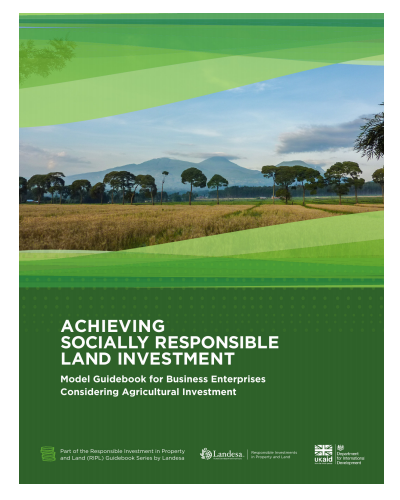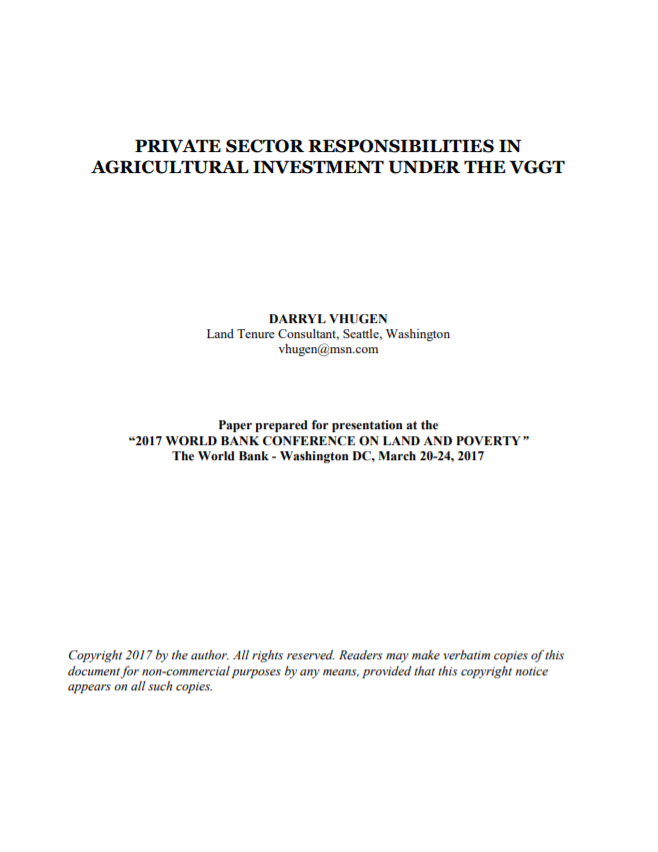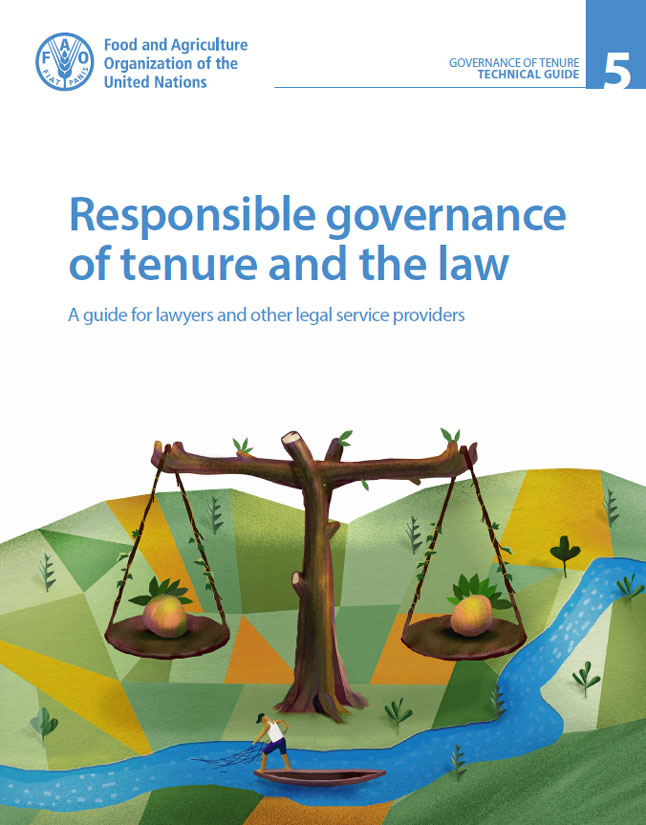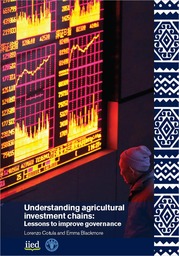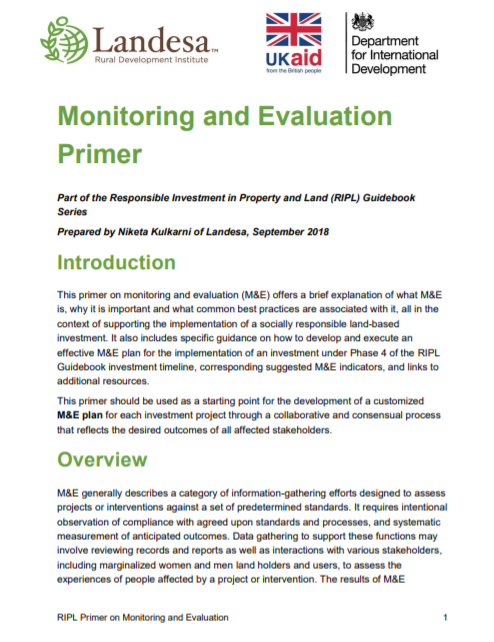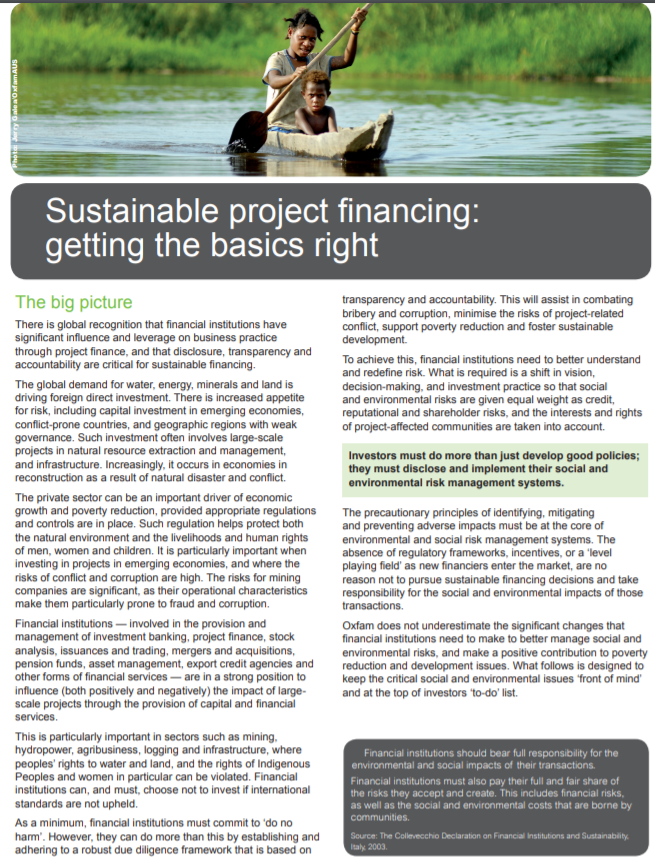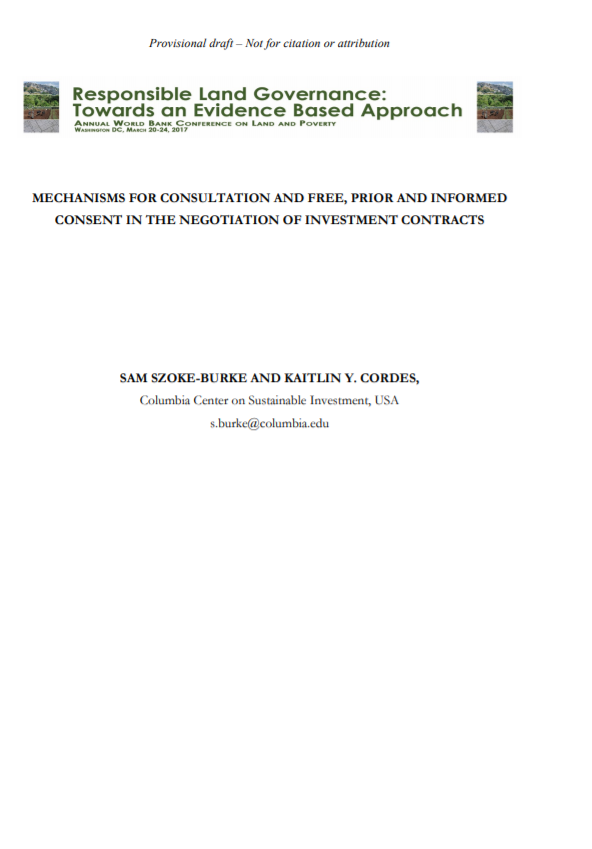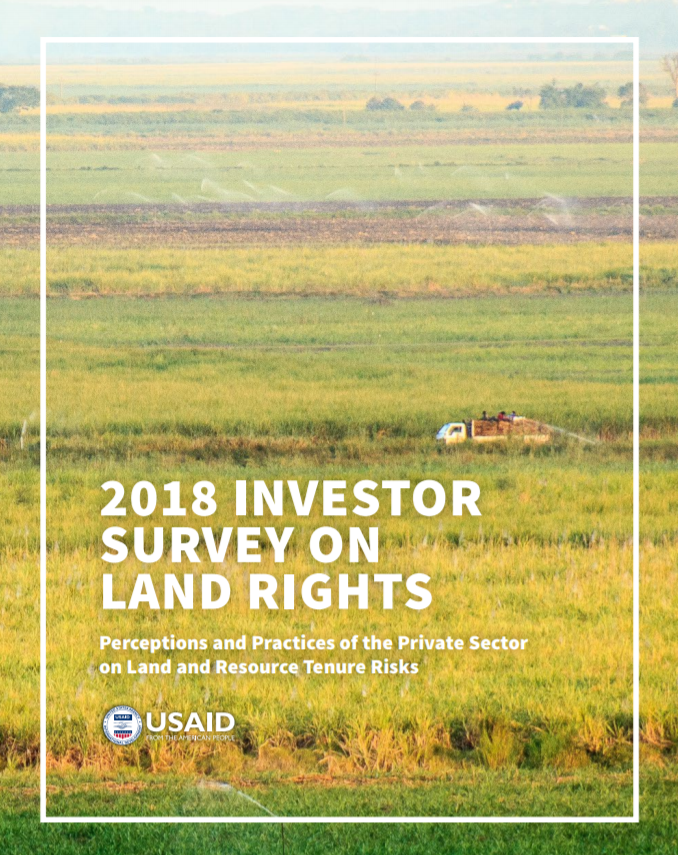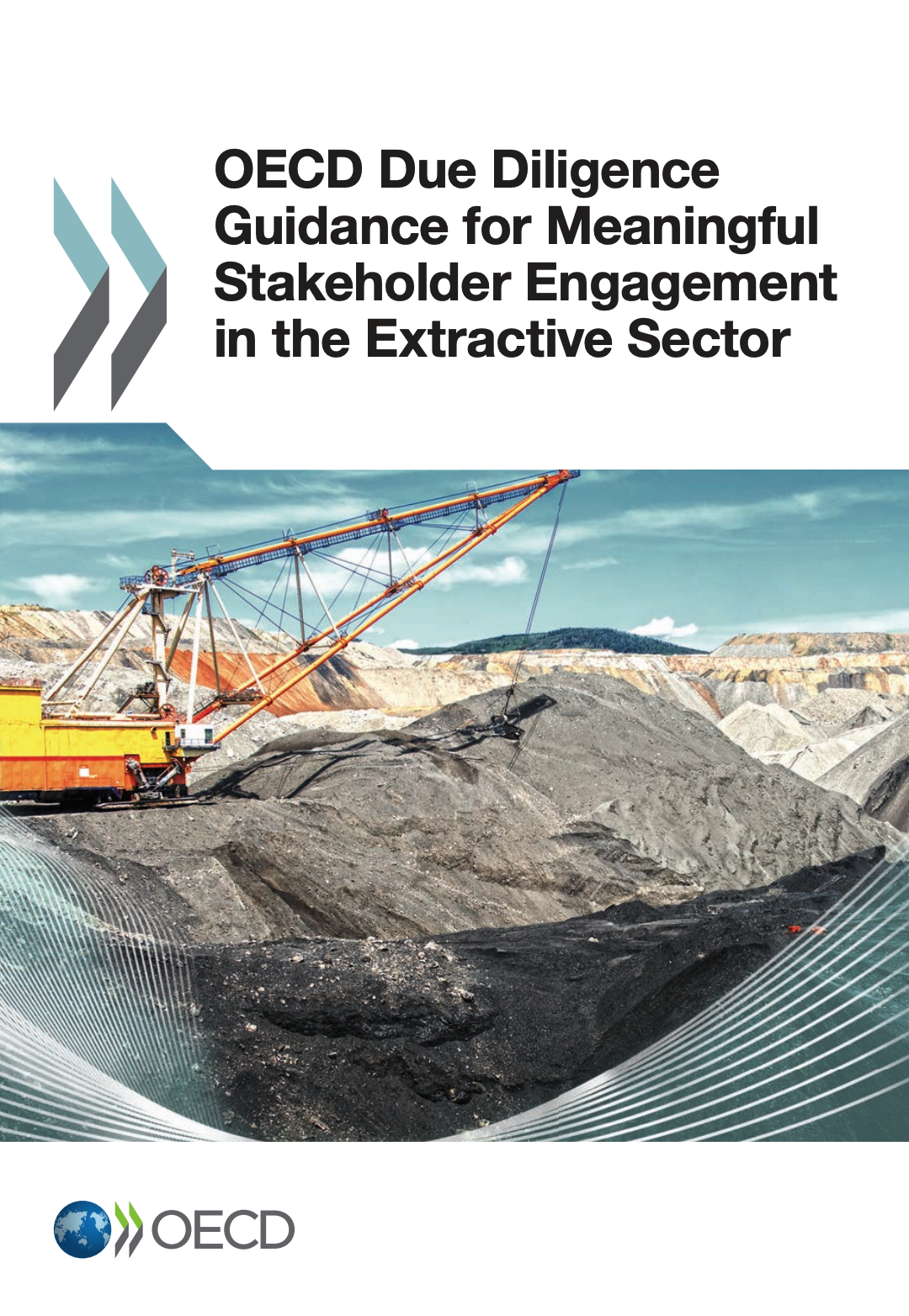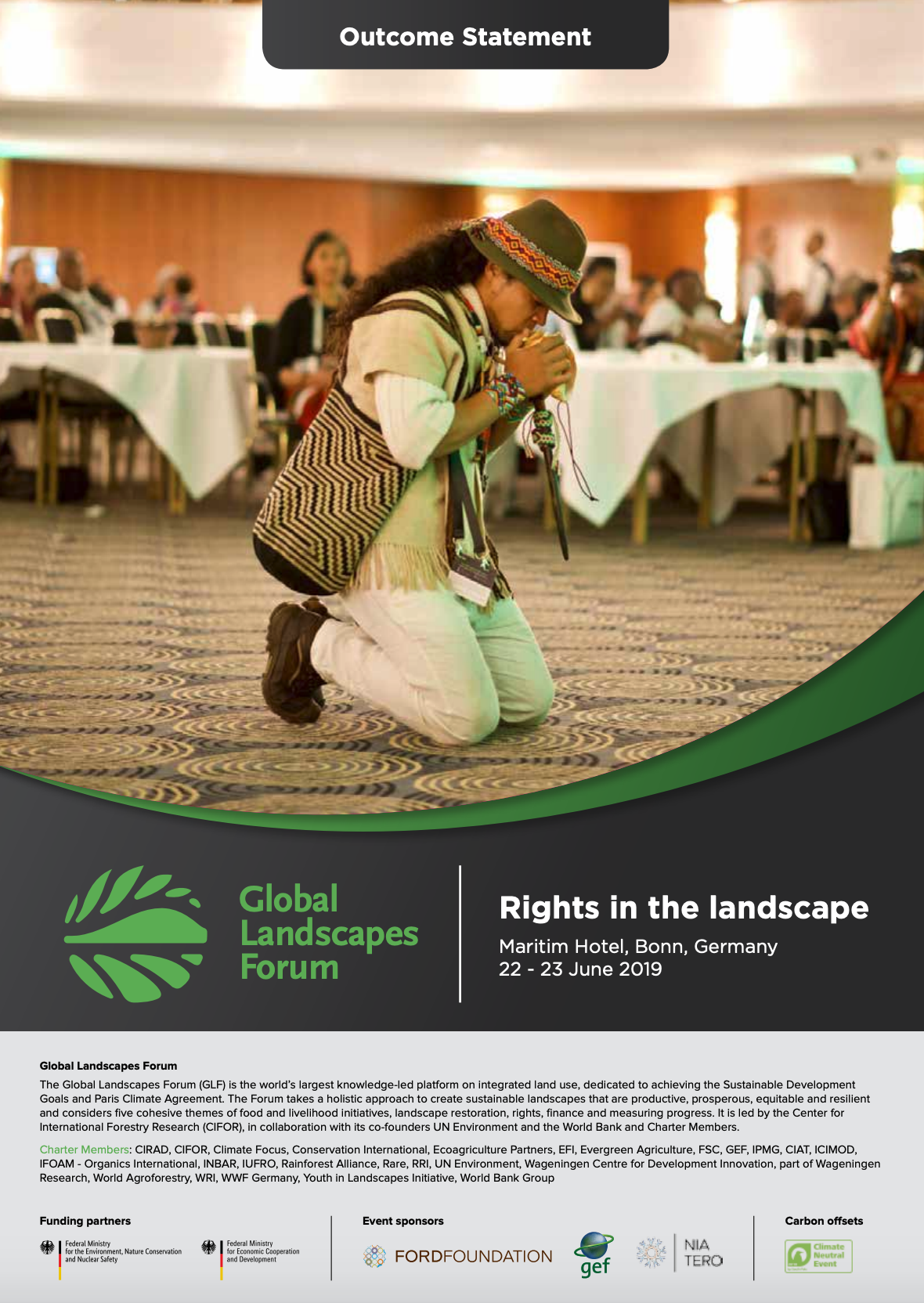Achieving Socially Responsible Land Investment - Model Guidebook for Business Enterprises Considering Agricultural Investment
This Guidebook for Business Enterprise includes instructions and tailorable tools for business professionals seeking to design and implement an agricultural investment in a socially responsible manner that recognises and protects community land rights. It provides support for implementing best practices related to understanding and respecting land rights in the context of an investment.

